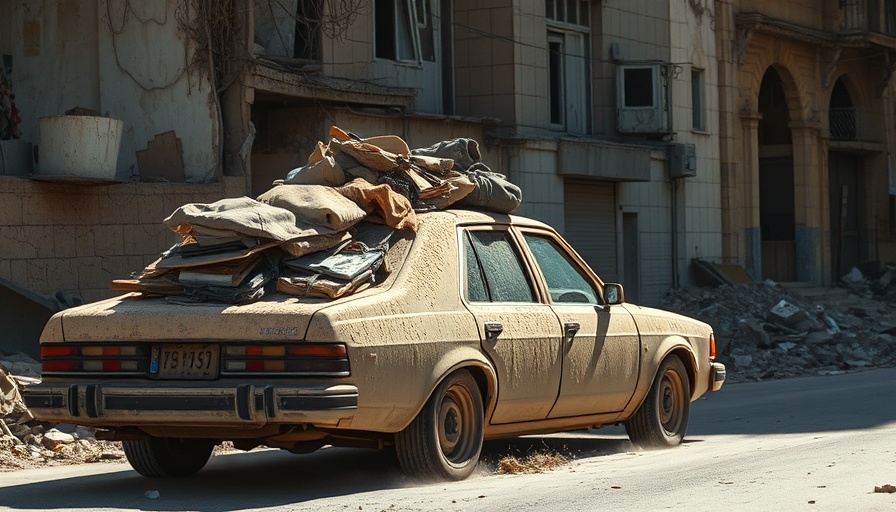
Escalating Conflict: The Human Toll in Gaza City
The situation in Gaza City is rapidly deteriorating. With Israel's military intensifying its bombardment, citizens of this Palestinian urban center find themselves at an ever-increasing risk of casualty. The described activities aim to flush out Hamas, viewed by Israel as the remaining significant deterrent in the area. However, as the calls for international intervention grow louder, the plight of the over one million civilians caught in the crossfire cannot be overlooked.
In 'Israel steps up bombardment of Gaza City ahead of its new offensive,' the discussion dives into the escalating tensions and humanitarian implications, exploring key insights that sparked deeper analysis on our end.
The Burgeoning Humanitarian Crisis
The UN Secretary General, Antonio Guterres, recently characterized the escalation as a new and dangerous phase of the ongoing hostilities. The warning of impending humanitarian disaster weighs heavily on both civilians and aid organizations. Civilians have already begun to flee deeper into the city as artillery shells fall around them, leading to sneaking fears that an even larger displacement crisis looms on the horizon. Pictures of smoke billowing over crowded camps illustrate the anxiety felt in a region already stricken by devastation. How long before these individuals can find refuge amidst their ruined homes?
Historical Context and its Current Implications
Israel's complex history with Gaza, rife with conflict and diplomatic attempts, has laid the groundwork for the current situation. The last few decades have seen escalating tensions that often culminated in military actions such as the one unfolding currently. Each cycle of violence appears to deepen the entrenched positions of both parties, with civilians being the primary victims. This context reveals that the humanitarian implications of military strategies often surpass tactical advantages, emphasizing the need for more than just military solutions to this ongoing crisis.
International Response and Global Implications
Global voices have increasingly called for an immediate ceasefire. South Africa has stepped into the fray, advocating for a negotiated settlement brokered by Egypt and Qatar. However, there lies a disconnect between these calls and the ground realities, as the situation continues to evolve violently. The world watches and debates while the people of Gaza suffer, raising a pivotal question: Do political solutions exist outside of military options?
Counterarguments: Perspectives from Both Sides
While the narrative often highlights the civilian suffering, it is crucial to consider the broader geopolitical implications, including Israel's perspective on national security. For many supporters of Israel, the military action is seen as a necessary measure to combat terrorism and ensure state safety. However, the human cost and ethical implications of such measures are hotly debated. It begs reflection on whether international laws of engagement and human rights standards are being upheld as these operations intensify.
The Importance of African Perspectives
For professionals monitoring African current events, understanding the Gaza crisis and its implications extends beyond humanitarian watch. It resonates in the broader discourse of African diplomacy and regional security governance. The ability or inability of international actors to mitigate such crises may set precursors for how similar areas of tension within Africa are addressed, bringing into sharper focus the African Union's role as a mediator in conflict resolution.
An Ethical Call to Action
The urgency of this crisis illuminates a crucial need for a collective call to action. Understanding these complexities is vital for civic engagement and advocacy for a renewed focus on diplomatic resolutions that shield civilians from the ravages of war. Professional communities in Africa and beyond have a unique responsibility to remain informed and engaged, contributing to discussions that could sway policies toward humanitarian relief and peacekeeping.
The time for informed voices and strategic discussions is now more than ever as the crisis in Gaza City escalates.
 Add Row
Add Row  Add
Add 




Write A Comment